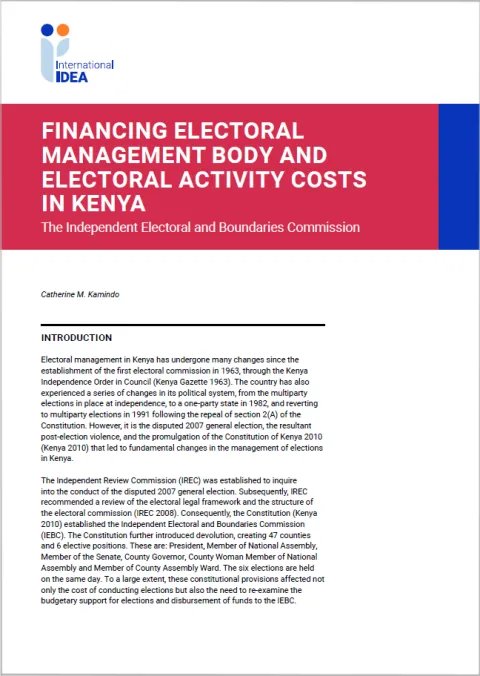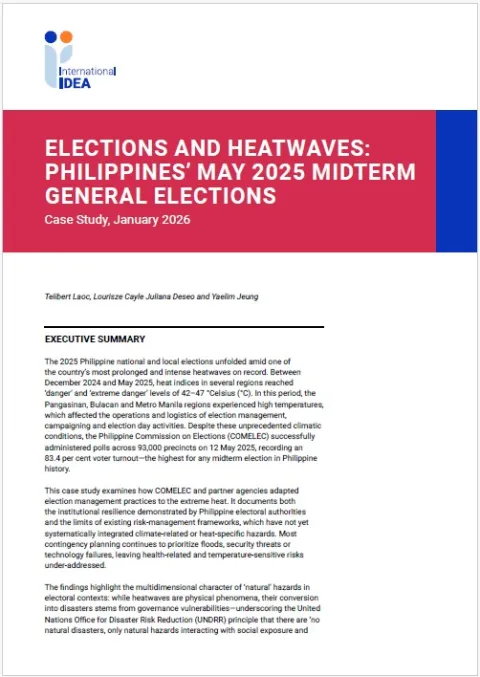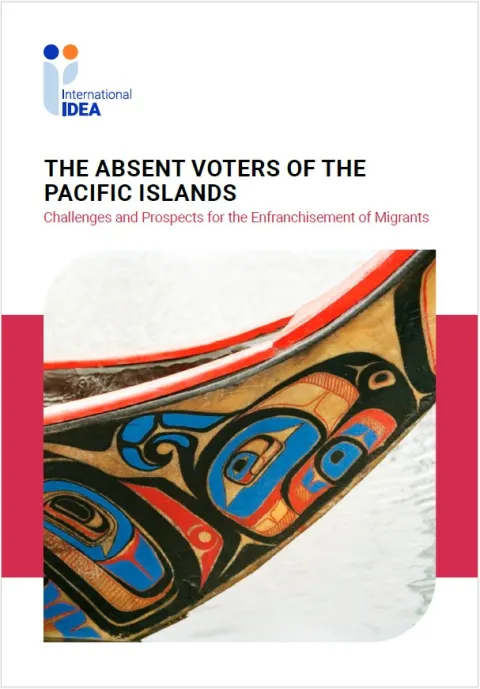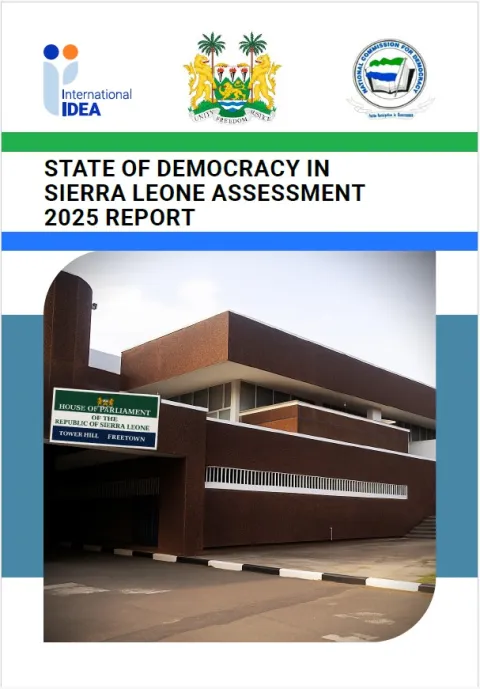Financing Electoral Management Body and Electoral Activity Costs in Kenya
Electoral management in Kenya has undergone many changes since the establishment of the first electoral commission in 1963, through the Kenya Independence Order in Council. The country has also experienced a series of changes in its political system.
The Constitution established the Independent Electoral and Boundaries Commission (IEBC) and further introduced devolution, creating 47 counties and 6 elective positions. To a large extent, these constitutional provisions affected not only the cost of conducting elections but also the need to re-examine the budgetary support for elections and disbursement of funds to the IEBC.
This Brief discusses the financing of the electoral management body and the electoral activity in Kenya. The Brief is part of the Financing Electoral Management and Electoral Activities project.
Details
Contents
Introduction
1. Overview of the electoral management framework
2. Public financial management framework
3. Budget formulation and approval mechanisms
4. Accountability and transparency
5. Budgetary and funding
6. Risks associated with the funding system
7. Recommendations for improvement
8. Conclusions
References
Abbreviations
About the author
Give us feedback
Do you have a question or feedback about this publication? Leave us your feedback, and we’ll get back to you
Send feedbackFinancing Electoral Management Body and Electoral Activity Costs in Kenya

| Total views | 3849 |
|---|---|
| Downloads | 83 |
| Rating |
Give us feedback
Do you have a question or feedback about this publication? Leave us your feedback, and we’ll get back to you
Send feedback











